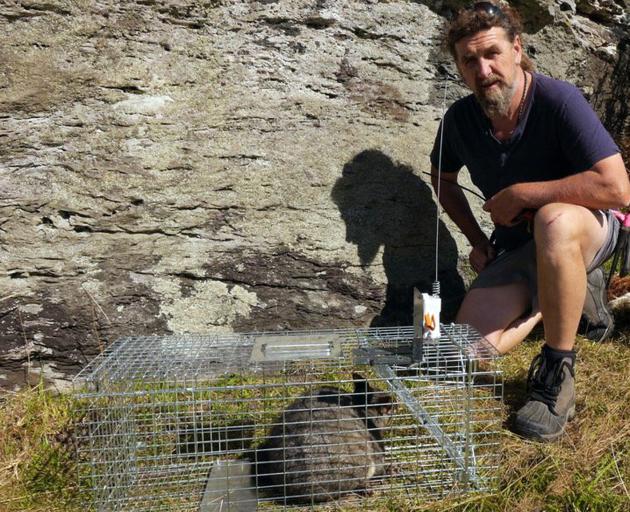
The Central Otago-Lakes Branch of the Royal Forest & Bird Protection Society of New Zealand has had to shut down its satellite-monitored live capture trapping network for the duration of the lockdown.
Committee member Andrew Penniket said in the two weeks it had been operating before the crisis they had caught 10 cats, 17 possums amd 16 hedgehogs.
"We are looking to protect the braided river birds such as the black-fronted tern, black-billed gull, and the wrybill, which is the only bird in the world with a beak that bent sideways.
"It is not just the cats we are after; it’s hedgehogs and possums and anything that is going to eat the birds and go out there on the flats."
Mr Penniket said his branch had deployed 42 of the live capture traps along 13km of the Matukituki River, each one fitted with a transmitter.
When a pest was caught in the live trap, a signal was sent via a relay hub to a satellite which sent the trap location to volunteers’ cellphones and computers.
Mr Penniket said because they used a live capture trap, members were required to destroy the predator within 24 hours of it being caught, and under the lockdown they could not do that.
He said they would reactivate the network as soon as the lockdown was over.











